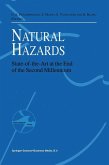Since the dissolution of the Soviet Union almost a decade ago, there has been rapid evolution of interactions between the Western nations and individual countries of the former Soviet Union. As part of that interaction, the autonomous independent Republic of Azerbaijan through its scientific arm, the Geological Institute of the Azerbaijan Academy of Sciences under the Directorship of Academician Akif Ali-Zadeh and Deputy Director Ibrahim Guliev, arranged for personnel to be seconded to the University of South Carolina. The idea here was to see to what extent a quantitative understanding could be achieved of the evolution of the Azerbaijan part of the South Caspian Basin from dynamical, thermal and hydrocarbon perspectives. The Azeris brought with them copious amounts of data collected over decades which, together with the quantitative numerical codes available at USC, enabled a concerted effort to be put forward, culminating in two large books (Evolution of the South Caspian Basin: Geological Risks and Probable Hazards, 675 pps; and The South Caspian Basin: Stratigraphy, Geochemistry, and Risk Analysis, of which were published by the Azerbaijan Academy of 472 pps. ) both Sciences, and also many scientific papers. Thus, over the last four to five years an integrated comprehensive start has been made to understand the hydrocarbon proneness of the South Caspian Basin. In the course of the endeavor to understand the basinal evolution, it became clear that a variety of natural hazards occur in the Basin.
Bitte wählen Sie Ihr Anliegen aus.
Rechnungen
Retourenschein anfordern
Bestellstatus
Storno








